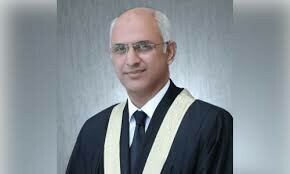
The legendary Lehri, who passed away on Thursday in Karachi at the age of 83, will live on as the once almost indispensable sidekick of the Pakistani film.
Starting in the mid-1950s, Lehri — born Safirullah Siddiqui — was a reliable entertainer for many decades. In his later years he served as a nostalgic reminder about all that had gone wrong with Pakistani cinema and the country in general.
The largely urban-based dramas produced soon after independence in 1947 cast the protagonist in the role of an educated young man without too much of an appetite for fun and games. Heroes could not be jokers. The funny bits, the comic relief, were assigned to a group of comedians from amongst whom Lehri emerged as a prominent face.
It would be hard to describe Lehri as a multi-dimensional actor. His success is best explained by his ability to deliver comedy deadpan. He knew his limitations and in these was rooted his subtlety.
Born around 1930, according to Mehta Gander’s Pakistan Cinema — 1947-1997, Lehri “started as a stage performer in Karachi” before he got his break in film in 1956.
‘Anokhi’, more known for starring Sheela Ramani, a Dev Anand heroine from Bombay, is listed as Lehri’s debut film. The film was made in Karachi and he “had to wait for two more years for his next assignment in ‘Dil Mein Tu’,” writes Gazdar, who places Lehri in a class of his own.
The biggest compliment Gazdar pays to this “entirely different entity” among comedians is: “It will not be an exaggeration to add that Moeen Akhtar, Pakistan’s internationally famous TV and stage entertainer, is also one of the aspirants to Lehri’s style of humour. Lehri’s long list of films includes ‘Insaan Badalta Hay’, ‘Jabb Say Dekha Hai Tumhen’, ‘Aag’, ‘Nai Laila Naya Majnun’, ‘Anjuman’ and ‘Saima’.
“Lehri came into his own in the 1960s when heroes such as Kamal, Waheed Murad and Muhammad Ali were piloting Pakistani film forward. By now working in Lahore productions, in 1965 he was an accomplished enough actor to win the prestigious Nigar Award for the best comedian in `Kaneez’, an honour he won numerous times later, too.
As other lead actors such as Nadeem came on the scene, Lehri — though showing signs of ageing — continued to provide comic relief in his now familiar side role. His acting career was curtailed by a stroke that he suffered in the 1980s, and Nazrul Islam’s lesser known 1988-production ‘Chakkar’ was one of his last films.
HUMOUR AND DECENCY: Lehri’s forte was the quip and in his monotone, his audience became used to finding a brand of quiet, almost surreptitious humour. To critics and to his fans, his restrained style came to personify the 'decency’ of times gone by.
His innocent, straight-faced persona hid behind it a formula. Lehri’s dialogue was always delivered with a consistent nasal emphasis that betrayed an effort to be low-key, but whenever necessary it was carefully spiked with the innuendo that sold.
The naughty sexual undertones were very much a part of Lehri’s work. His satire on social ills was chiselled, cutting but not blatant. After the stroke, Lehri was reduced to occasional appearances in PTV shows and newspaper columns. By the time private-sector television arrived, though, the film industry was struggling and all that it had once encompassed was looked upon both with a sense of loss and with fondness.
In Lehri, television found one of the more well-known surviving veterans of a ‘decent’ creative age. This time, he was cast in double role: he could help perpetuate the lament about the Pakistani film industry just as he pioneered the trend of celebrating outstanding Pakistanis during their lifetime.
With his long white beard and his ever pleasant disposition, Safirullah Siddiqui Lehri came to be known as one of the most effective protagonists of Pakistanis’ televised trips to the happy film kingdom of the past. As appeals for donations to help the actor through his long illness were routine, it was Lehri’s presence which ensured this was no tear-jerker in which he was playing a lead role. He retained his soft touch and prevented situations from degenerating into vulgar charity-collection enactments.
An editor more mindful of preserving a cinematographic image and a lifetime’s reputation would have perhaps deleted the portion where the actor was shown on the screen shyly asking Nawaz Sharif for money. But it was still fun to find the same old Lehri relating jokes to Mr Sharif: "She was wearing a net kurta; I said while the dress may not kill flies and mosquitoes, it will surely kill the germs of sharafat [decency]."
It was this sort of humour that had marked Lehri’s entry on the public stage some 56 years ago, and this brand which had sustained him. This is what his fans will remember him for.













































